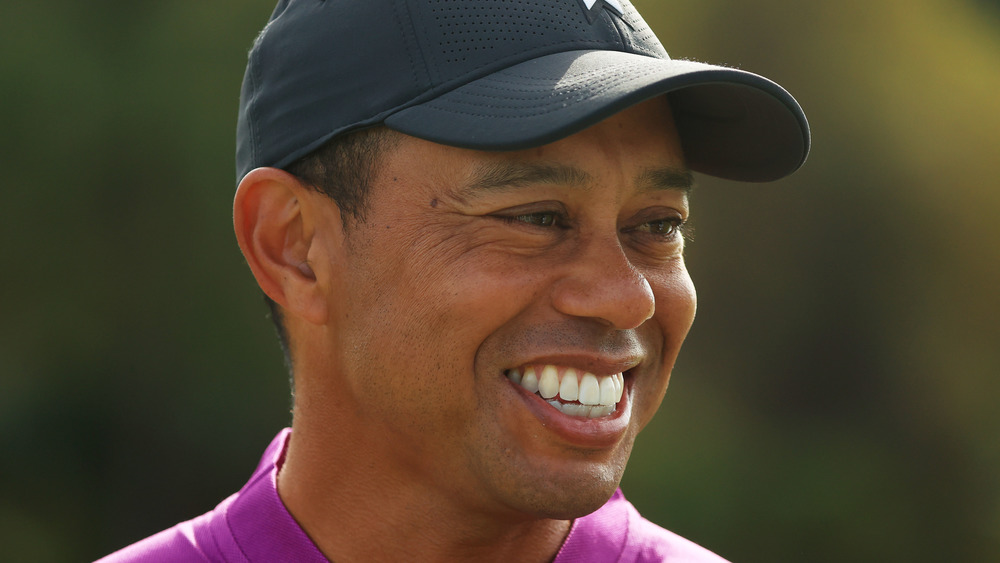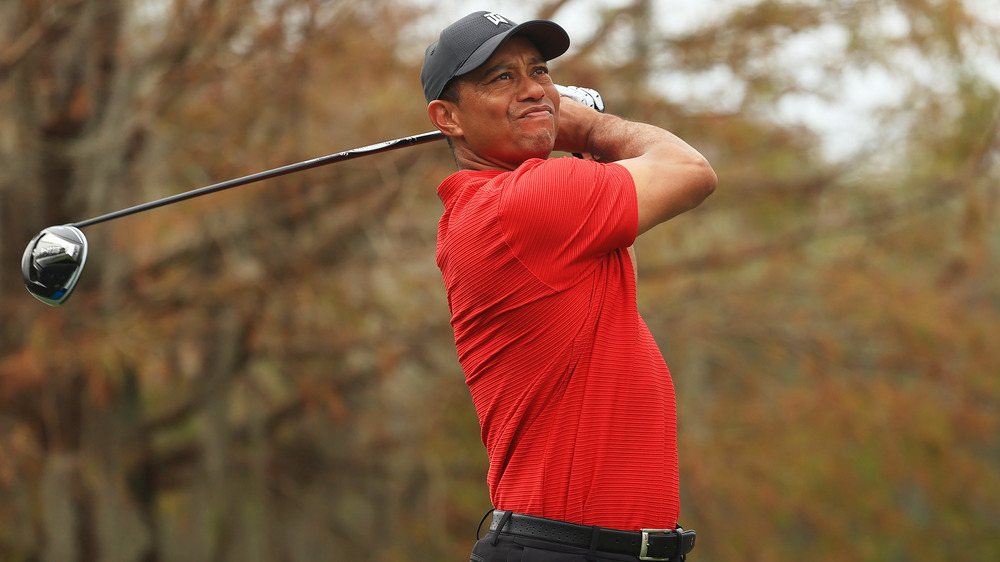Why Tiger Woods Didn't Approve His HBO Documentary
Tiger, HBO's two-part documentary on Tiger Woods, seeks to provide audiences with a deeper and more nuanced look at the world's most famous golfer and 15-time major award winner. The only problem? Woods doesn't approve.
On Jan. 10, 2020 — the same day part one of the series debuted — Woods' agent, Mark Steinberg, issued a statement strenuously denouncing the series, echoing his reaction to the 2018 biography, Tiger Woods, which inspired the documentary. "Just like the book it is based off of, the upcoming HBO documentary is just another unauthorized and salacious outsider attempt to paint an incomplete portrait of one of the greatest athletes of all-time," Steinberg said in his statement, according to Golf Digest. Woods has not personally made a statement about the series to date.
The aforementioned biography, written by Jeff Benedict and Armen Keteyian, used Woods' public statements, interviews with people close to the athlete, and previously published biographies as sources. At the time the biography was published, Steinberg, along with Woods' spokesperson Glenn Greenspan, released a lengthy statement to GOLF.com, saying that the book was full of "egregious errors" and accusing Benedict and Keteyian of failing to reach out to them for comment — something the authors disputed.
"Between January 2016 and February 2018, we made repeated attempts to interview Tiger himself through his representatives ... they imposed conditions for Tiger's cooperation that no serious journalist would accept," they said.
Tiger Woods did not participate in his HBO documentary
Tiger documentary directors, Matt Hamachek and Matthew Heineman, requested a personal interview with Tiger Woods on two occasions, according to GOLF.com, but both requests were reportedly declined, citing contractual conflicts. As a result, the HBO docuseries relies heavily on interviews with formerly close associates of the golf champion, including his father, Earl Woods, his former caddie, Steve Williams, and some former girlfriends, in addition to archival footage and an unofficial 2018 biography.
Even though the filmmakers couldn't get Woods to speak to them, Hamachek adn Heineman claim they wanted to make sure the golfer was accurately represented. "There was a constant drive on our part to make sure that even though we didn't have Tiger, we gave him a voice, and we let the people who knew him well put us inside of his mind," Hamachek told GOLF.com
Though Woods has been in the public eye for most of his entire life, little is widely known about the complexities of his personal story, which is what the documentary's directors tried to address. "Like all of us, he's human; he's flawed," said Heineman in an interview with CNN. "And unlike all of us, his life has played out in the public eye in a way that probably no one else's life has. Tiger is an incredibly complex person; we want to really embrace that nuance and that complexity."
Another reason Woods might not approve of the series? He simply doesn't like being in the spotlight.


